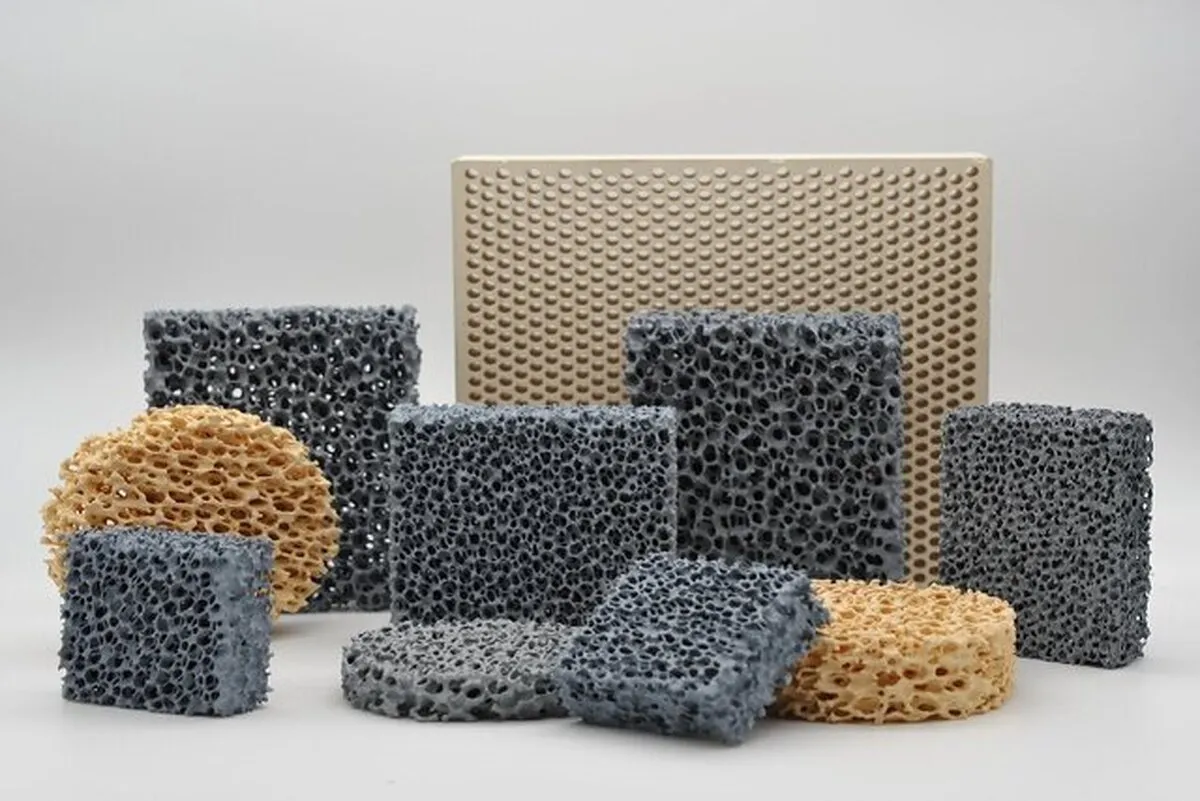Knowledge-Based Firm in Iran Produces Ceramic Filters Resistant to High Temperature, Shock

“Ceramic filters, which have a gray appearance, are mainly used for filtering gray grass and ductile. They meantime can be used for non-ferrous metals due to their high temperature resistance,” said Sediqeh Mohebbi, the managing director of the knowledge-based company.
“The percentage of porosity and the size of the holes in this product has been designed in a way that it prevents the entry of slag, materials which have reacted with the cast metal, and sand particles into the mold, and this process leads to the slow flow of melt while filling the mold,” she added.
Mohebbi noted that in addition to reducing costs caused by defected parts, the ceramic filters decrease the size of duct systems and, as a result, simplify its design.
In another development, a nanotechnology company in Iran produced a new type of casting powder with a special formulation in which silica nanoparticles were used to improve performance and quality.
‘Mavad Gostar Roham’ company used silica nanoparticles in its special casting powder to improve the fluidity of slurry so that it can cover the entire surface of the wax sample well and take and maintain the elegance and precision of the sample’s dimensions.
Also, it prevents the sedimentation of slurry until the end of the plaster’s drying, which, as a result, maintains the better integrity of the plaster mold.
The slurry dries in such a way that it can be used by people who make metal artifacts without a machine in addition to those who work in equipped casting workshops. On the other hand, application of silica particles with nano dimensions leads to better integrity and higher resistance in the gypsum mold in thermal tensions.
Among the advantages of the product are high strength against the thermal tensions of melting without cracking and breaking, high quality approved by gold and jewelry casting workshops, and cost-effectiveness compared to foreign samples.
4155/v





















